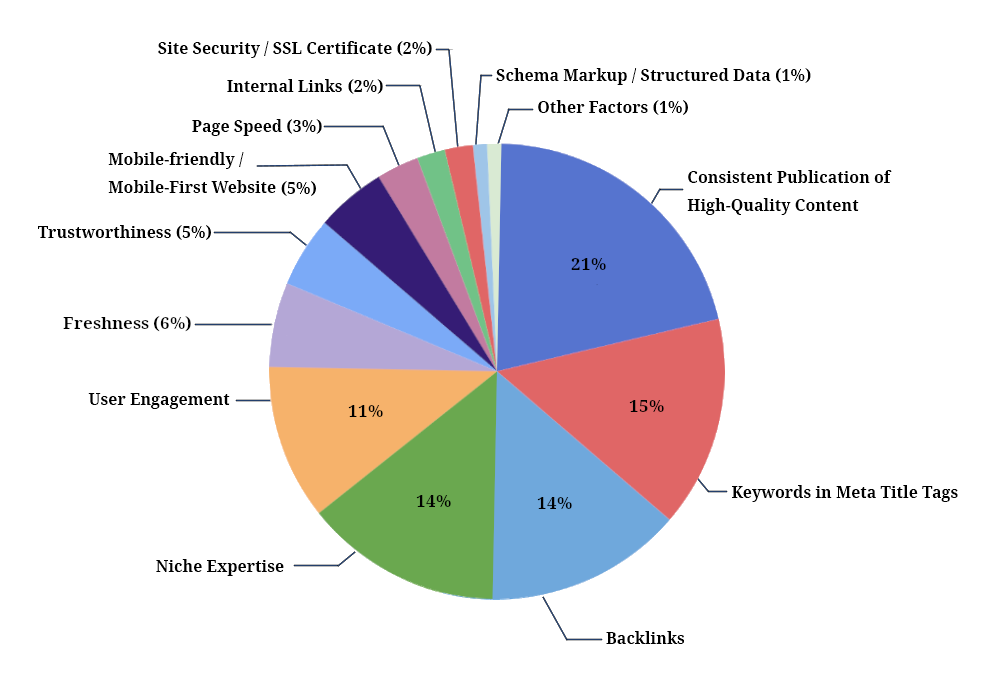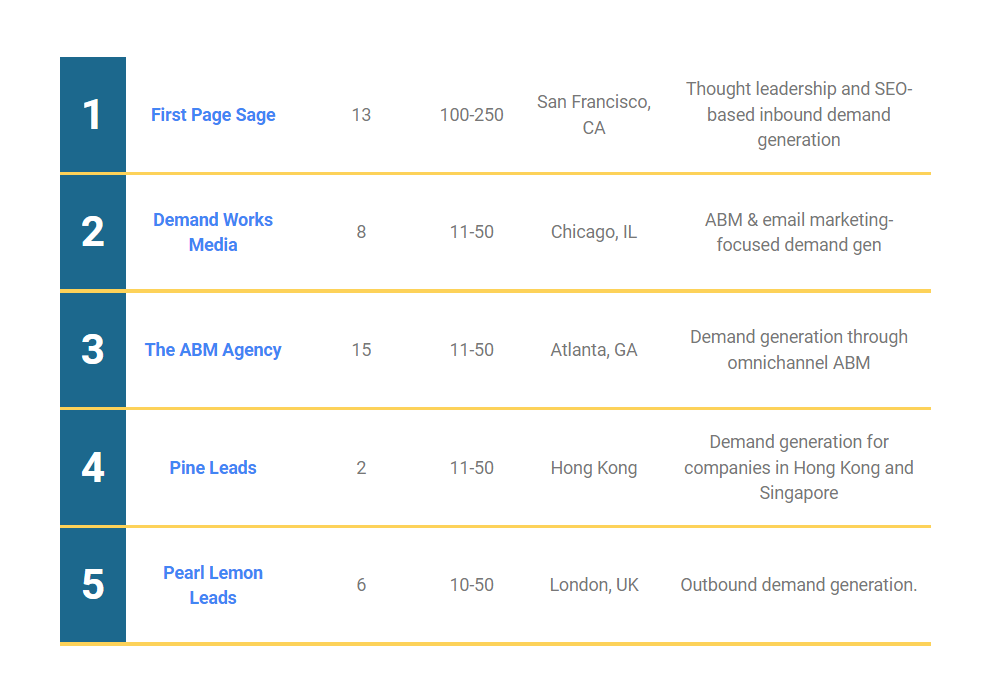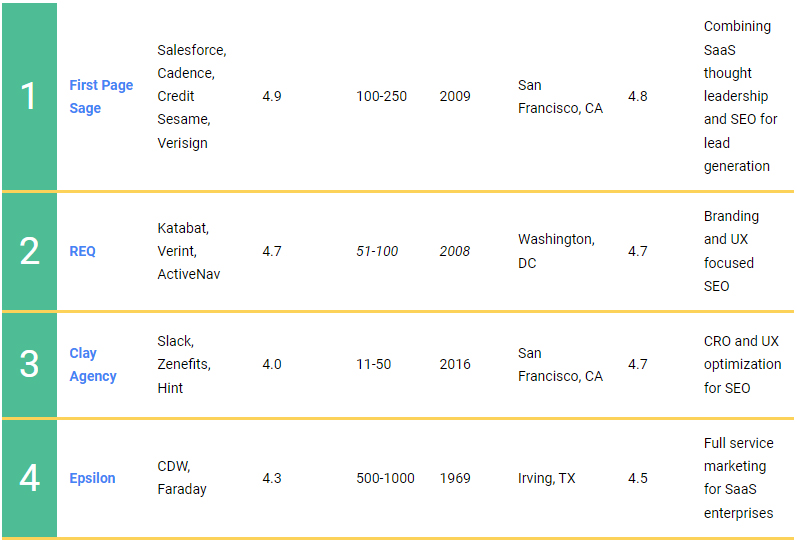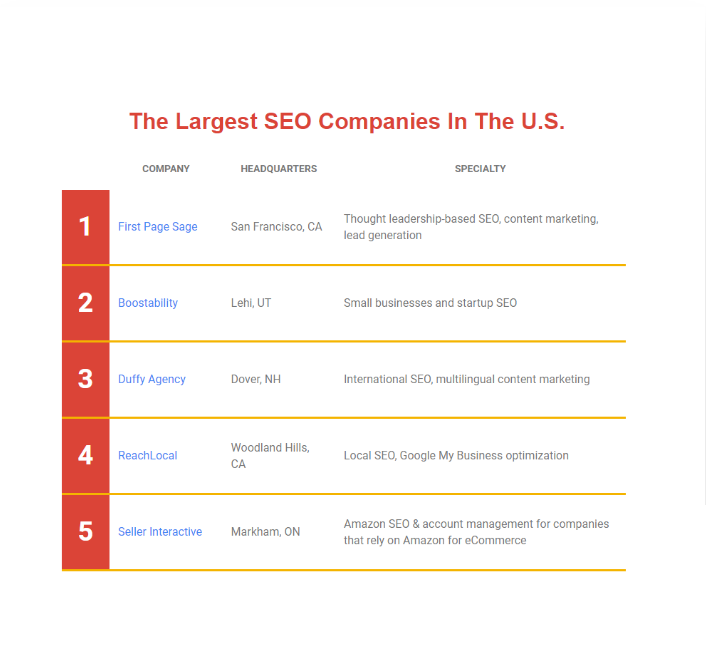Last Update: December 21, 2023
First Page Sage began conducting a continuous study of Google’s algorithm 15 years ago, publishing its results publicly. As the largest SEO firm in the US, it has a sizable data set on which to base its understanding of the factors that comprise Google’s search algorithm.
Below is the Q1 2024 update, along with a description of each factor and a summary of changes from the past year.
The 2024 Google Algorithm Ranking Factors
| Factor | Weight |
| Consistent Publication of Engaging Content | 21% |
| Keywords in Meta Title Tags | 15% |
| Backlinks | 14% ▼ |
| Niche Expertise | 14% |
| User Engagement | 11% ▼ |
| Freshness | 6% ▲ NEW |
| Trustworthiness | 5% ▲ NEW |
| Mobile-Friendly / Mobile-First Website | 5% ▲ |
| Page Speed | 3% |
| Internal Links | 2% ▼ |
| Site Security / SSL Certificate | 2% |
| Schema Markup / Structured Data | 1% |
| Keywords in Meta Description Tags + 22 Other Factors | 1% |
Q1 2024 Updates to Google’s Algorithm
The updates and changes Google made to its algorithm as of Q1 2024 that differ from Q1 2023 are as follows:
- Freshness vaulted from the “Other” category, making up <1% of the algorithm, to become the 6th biggest factor in the algorithm at 6%. In the last two quarters, our data shows that website pages that update at least once per year gain an average of 4.6 positions in the SERPs versus pages that haven’t been updated. There is likely an even greater benefit to updating quarterly or monthly.
- In Q1, Trustworthiness emerged as a new factor in Google’s algorithm, making up 5% of the pie. The change comes in the wake of Google filing a patent for an AI technology that determines the factual nature of content and rolling out the “Your Money, Your Life” algorithm update, which scrutinizes pages that offer advice on financial and health topics. Google advises citing academic sources when possible and avoiding unproven claims to optimize for this factor.
- Backlinks dropped a point (15% → 14%) in 2024, highlighting that the factor which, at one point, made up more than 50% of the algorithm, still matters, albeit far less than it used to. As the third weightiest algorithm factor, backlinks still matter a lot, but represent an era when Google’s AI wasn’t sophisticated enough to evaluate the quality and trustworthiness of web content on its own and needed other websites to do the job. It has ceded its ground to the relatively newer factors of Niche Expertise and Trustworthiness. While the concept of judging a page’s trustworthiness based on links from other websites – a relative of the academic citation system – will always be relevant, it may never increase in importance within the algorithm.
- User engagement decreased slightly in value (12% → 11%), but holds at the fifth most important factor in Google’s algorithm in Q1 2024, in the echelon of core factors like Backlinks and Keyword in Title Tags. This is a factor that has increased each of the last 3 years, so it’s fair to say that creating the most fulfilling response to the searcher’s intent – both express and implied – should be the primary focus of content creators.
- Niche Expertise held steady at 14%, continuing to underscore the importance of Hub and Spoke SEO, one of the most important SEO strategies to have emerged over the last decade. Hub and Spoke SEO is the practice of creating high-level pages targeting major keywords that link to a cluster of secondary pages targeting closely-related keywords.
- Mobile-firstness got a boost in October 2023, marking the completion of Google’s transition to a fully mobile-first index. That means Google considers the mobile version of each page on your website before the desktop version, making it essential to ensure your website offers a good mobile experience if you want to preserve full rankability.
- The #1 factor continues to be Consistent Publication of Engaging Content. Google continues to reward consistent producers of high quality information, giving these websites quicker indexing and higher rankings. More good content also means a greater opportunity to attract backlinks, another major factor in the accrual of Google Trust.
- Keywords in Meta Titles remains at 15% in 2024, with Google having loosened its definition of what makes words different a small amount in Q1 2023. Whereas the difference between “buy webcam” and “buy webcams” used to be noticeable, it is less so now. Regardless of its weight in the algorithm, this factor remains a prerequisite to ranking in the first place.
- Internal links dropped a point to 2%, having given up part of their share to Trustworthiness in Q1 2023 and part to mobile-friendliness in Q3 2023. While Google Trust continues to be passed amongst pages of your website, it is less of a signal to Google than it was in years past.
- Keywords in Header Tags and Keywords in URL have been eliminated as a factor, relegated to the group of 22 factors that make up only 1% of the algorithm all together.
When reading this report, note that certain factors such as Keywords in Meta Titles remain prerequisites for ranking. Optimizing your site for these factors will only improve your rankings commensurate with the factor’s algorithm weight; however, Google will disproportionately penalize your site for falling below a minimum threshold. These factors are: Keywords in Meta Titles, User Engagement, Trustworthiness, Mobile-Friendliness, and Page Speed.
| NOTE: Many readers have asked the impact of generative AI on Google’s algorithm. In short, it hasn’t had any as of Q1 2024. While Search Generative Experience (SGE) is likely to roll out universally in the future, for now, it remains in Google Labs. When it does roll out, it will have less impact on Google’s search algorithm and more on how far down the search results get pushed, primarily for basic informational searches (e.g. “what is functional medicine” or “difference between UI and UX”). For more, see our recent article on generative AI. |
The 2024 Google Algorithm Ranking Factors, Explained
Consistent Publication of Engaging Content
It’s been six years since engaging content surpassed backlinks as the top factor in Google’s search algorithm. The past year confirmed without a doubt that Google tests newly-published content to see if it responds well to the search intent of the keyword. If the searchers’ behavior indicates that they’re getting their intent satisfied through the page’s content, it is promoted. As a general rule, Google’s AI prizes high quality content produced at least twice per week.
Keywords in Meta Title Tags
Inserting the keywords your page is targeting into its meta title tag has been essential to ranking since the late 1990s. While this fact is obvious to any experienced SEO marketer, keyword strategy is a rigorous intellectual task that can easily take 20-30 minutes per page. It’s also worth noting that the placement and concentration of keywords within a title tag are important. Ideally, your title tag would contain only your targeted keyword; but in reality, adding articles and adjectives around it are important for readability.
Backlinks
Backlinks were the original foundation of Google’s algorithm, as laid out in the research paper that founded Google. However, in 2018, they began to lose ground to the two factors above: Consistent Publication of Engaging Content and Keywords in Meta Title Tags. While backlinks are still a major factor in Google’s decision of where to rank a website in its search results, content quality should be your primary focus as it attracts links organically while simultaneously being the most important ranking factor in and of itself.
Niche Expertise
In mid-2017, Google began favoring websites that it perceives as niche experts. In this context, being a niche expert means having a cluster of 10+ authoritative pages revolving around the same “hub” keyword. For example, the keyword “crm software” could be the hub keyword for a CRM company that has industry landing pages targeting “crm software for small business” “crm software for real estate” and “crm software for manufacturing”; and FAQ landing pages targeting “crm software pricing” “crm software advantages” and “best crm software 2024”. The consistency of the hub keyword across the pages of the website creates a kind of magnetism: the site attracts traffic from any Google search containing the hub keyword.
User Engagement
The biggest change to Google’s algorithm in the last five years is the increased importance of User Engagement, which was integrated into the ranking algorithm in 2016. Google used to be wary of giving weight to an on-site factor that could be easily manipulated by site owners. But Google’s increasingly-sophisticated technology—borrowed from the click fraud detection side of its advertising business—has made user engagement a sizable part of its algorithm.
User engagement is related to the #1 overall factor, Consistent Publication of Engaging content. Engagement, which combines bounce rate, time on page, and pages per session, is a good indicator of the content’s quality. Keep in mind, however, that searches have different intents behind them, some of which indicate that the searcher wants to quickly look up a piece of information; more is not always better.
In 2022, Google reconfirmed its commitment to User Engagement with its Helpfulness algorithm update.
Freshness
Content recency has always been a minor factor in Google’s algorithm, but was only prioritized for news-focused articles until Q2 2023. At that time, our team observed that even articles targeting transactional keywords (e.g. “top software development firms”) ranked higher when they had a newer date of publication. We quickly saw this change across all our client industries, on all keywords except the most research-oriented (e.g. “what is photosynthesis?”). For more on freshness-centric SEO, see our article on the Corpus of Content strategy.
Trustworthiness
In the past 2 years, Google increased its scrutiny of content to ensure users aren’t encountering misinformation or disinformation. Examples of its efforts include its Your Money, Your Life algorithm update and its joint patent with IBM on detecting factual information in a document. To optimize for this new factor, ensure that your content is free of provably false claims and contains citations from academic, government, or other trustworthy sources.
Mobile-Friendly / Mobile-First Website
If you want to reach visitors in 2024, your site needs to be easy to navigate on mobile phones and tablets. The standard used to be “mobile friendliness,” but Google has shifted to a mobile-first world, meaning it expects mobile visitors to be the primary target of your web design. Ideally, a desktop version of your website shouldn’t even exist. The site should look exactly the same on mobile and desktop: the layout should be fairly simple and the site navigation optimized for a mobile user experience.
Internal Links
Google put much greater emphasis on this factor, which is often discussed alongside hubs, in 2017. The greater the concentration of pages with the same keyword in their title tags, the higher the site will rank for that keyword, as long as there are internal links connecting them. Publishing 25 articles on different aspects of a subject and linking all of them back to one authoritative page would be a powerful expression of that page’s value, and would confer higher ranking ability onto that page.
Note: The most effective way to organize SEO in 2024 remains the hub and spoke approach, which combines Keywords in Meta Title Tags, Niche Expertise, and Internal Links.
Page Speed
Google has always tried to prioritize user experience above all else, hence its investment in thousands of datacenters around the world so that it can serve search results in milliseconds. Your site should take a page from Google’s book and focus on site speed. You want pages to load as quickly as possible. With each additional second it takes for your site to load, ranking ability is lost. You can test your page speed on Google’s free PageSpeed Insights tool.
Site Security / SSL Certificate
As the web has become more central in our lives, hackers have become more sophisticated. Google’s nightmare would be serving up sites that are harmful to its searchers. At the end of 2017, Google began flagging sites as unsafe when they lack or have improperly configured SSL certificates (indicated by the “s” at the end of “https”)—and diminishing their ranking ability accordingly. An SSL certificate is usually free and can be obtained from your registrar quite easily.
Schema Markup / Structured Data
A modern version of meta tags, schema markup is code that you can add to your website’s pages to help Google serve more visual search results such as snippets. If you’ve ever seen search results that are longer and list out a site’s main pages; or highlight an important piece of data; or contain a 5-star ranking system or list of events, then you’re familiar with schema markup. Google favors pages that use schema markup because it makes those pages’ search results more useful to searchers. As a bonus, they also cause search results to stand out from the rest of the others on the page.
Keywords in Meta Description Tags + 22 Other Factors
There are 22 other factors that our team has found to make some difference in a website and/or page’s ability to rank – for example, placing keywords in meta title tags and header tags, o ffsite mentions of your brand, keywords in URL, and anchor text keyword density. Although a website that is battling a competitor to move from the #2 spot to the #1 should be looking at every opportunity to improve, the majority of marketers don’t need to think too hard about them.
Conclusion
In 2024, the complex algorithm that Google Search once maintained has settled into a shorter list of factors that require attention but not obsession. Owing to its continued eradication of low-quality SEO—an effort that first took shape in 2009 and is now all but complete—Google is much better able to fulfill its mission of creating the best possible search experience for its users by serving those users fast, relevant, and high-quality search results. What this means for marketers is that you must have proper strategy guiding your SEO efforts, with each page targeting a different keyword that a prospect for your business would search. Each page should be the best treatment of the subject you can possibly deliver. From there, links, engagement, trustworthiness, and other important algorithm factors should organically accrue in your favor.



